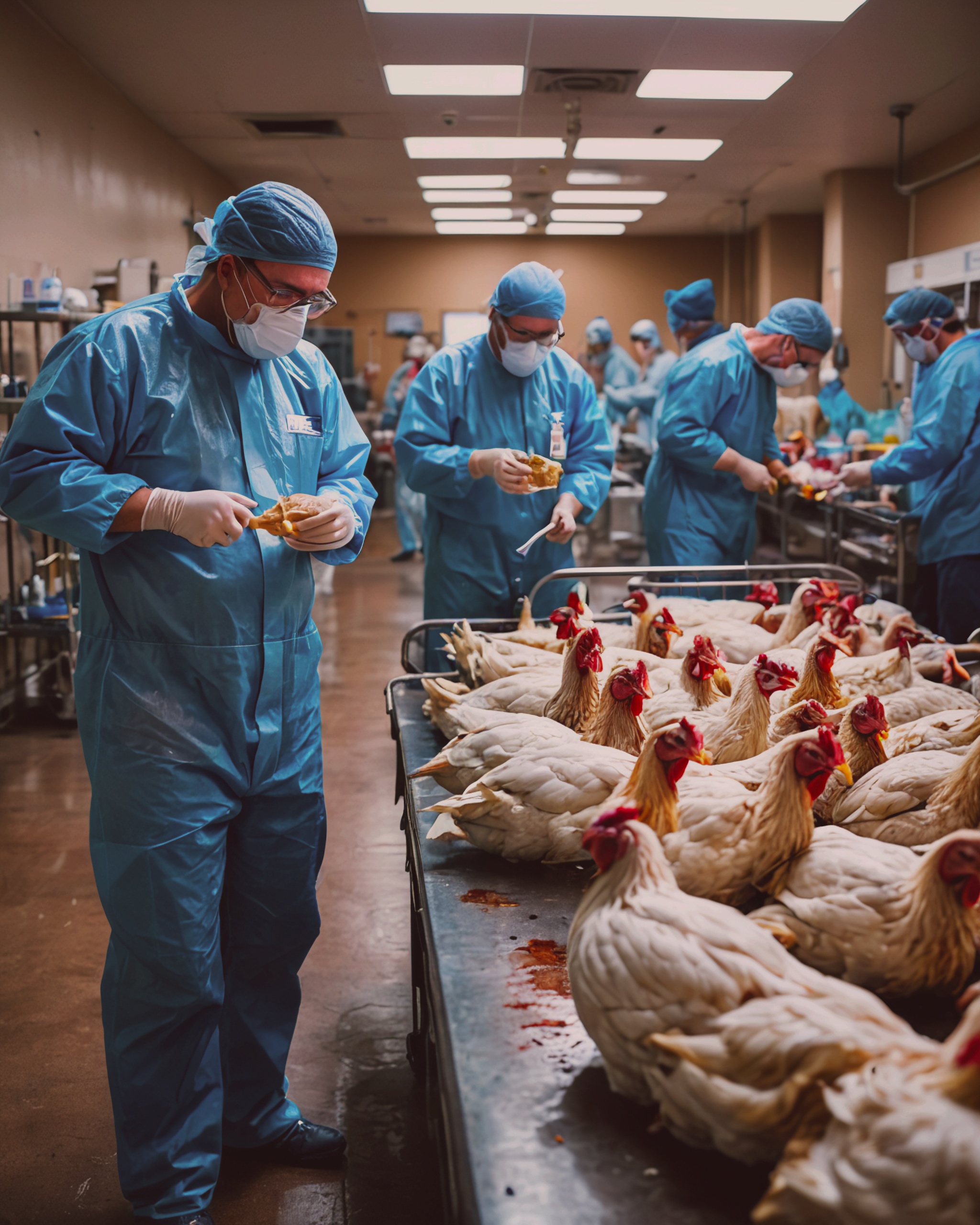Poultry workers involved in recent chicken culling at a Weld County egg-laying facility in Colorado have been linked to a bird flu outbreak. The Colorado Department of Public Health and Environment (CDPHE) reported that 55 symptomatic poultry workers were tested as of Friday.
DENVER — Three poultry workers at a commercial egg-laying facility in northeast Colorado have tested presumptive positive for bird flu, according to state health officials on Friday. This highlights the urgent need to control a virus that has already killed over 6 million birds and is now spreading to dairy cattle across the state. This news comes amid other bird flu latest news today across different states, including bird flu cases in New Jersey, bird flu in Japan, and bird flu in New Mexico.
These three new cases, pending confirmation by the U.S. Centers for Disease Control and Prevention (CDC), could make Colorado a leader not only in bird flu outbreaks among dairy cattle but also in human infections by the H5N1 virus. Similar concerns are being raised about bird flu in Michigan (bird flu mi), Wisconsin (bird flu wi), and California (bird flu california).
If confirmed by the CDC, Colorado will have detected five cases of H5N1 among poultry and dairy workers since the highly pathogenic avian influenza was first identified in the state in March 2022. This continues to add to the bird flu news articles covering the spread and impact of the virus.
A CDPHE spokesperson stated Friday evening that the affected workers were culling poultry at a farm in northeast Colorado. They exhibited mild symptoms, including conjunctivitis (pink eye) and other common respiratory symptoms. The statement did not specify the respiratory symptoms or indicate whether the workers received antiviral treatment. Attempts to contact the department for further details were unsuccessful.
None of the individuals were hospitalized, according to the spokesperson.
“These preliminary results again underscore the risk of exposure to infected animals,” a CDC spokesperson said. “There are no signs of unexpected increases in flu activity in Colorado or other states affected by H5 bird flu outbreaks in cows and poultry.”
The CDC statement also emphasized the potential for severe disease and pandemic risk from human infections with this novel influenza virus. If these viruses evolve to spread easily from person to person, it could trigger a pandemic. This is part of the broader concern around what is the new bird flu and its potential impacts globally.
CDPHE first identified symptomatic workers at the poultry farm on Thursday, testing seven individuals. On Friday, they returned with a larger team and tested 48 more symptomatic workers. “The test results from samples collected today (July 12) are still pending,” the spokesperson said, adding that these samples will be tested over the weekend.
State epidemiologists believe the poultry workers’ cases are due to direct contact with infected poultry, and the investigation is ongoing with support from the CDC. Similar measures and investigations are taking place in other states such as Washington (bird flu wa) and New Jersey (bird flu new jersey).
These potential cases are linked to a bird flu outbreak at a Weld County egg-laying operation, where 1.8 million chickens had to be culled. As a result, a quarantine order is now in place in parts of Weld County to limit bird movement in and out of the area. Commercial or backyard poultry owners in the quarantine area are asked to report their flock status through an online form.
The CDC is sending a team to Colorado to assist with the investigation, including ensuring compliance with recommended personal protective equipment.
Protecting Yourself Against Bird Flu
State health officials assert that the general public’s risk of catching bird flu is low, though individuals in contact with sick poultry or cattle are at higher risk. So far, there has been no human-to-human transmission of bird flu, according to the CDC.
The CDC recommends that farm workers in contact with H5N1-infected cattle wear disposable fluid-resistant coveralls, gloves, boots or boot covers, vented safety goggles or a face shield, and an N95 respirator.
The public should avoid contact with sick birds or animals. If handling sick or dead birds or animals is necessary, wear gloves, a high-quality mask (such as a KN95 or N95 respirator), and eye protection. After handling, double bag the animal and dispose of it in your municipal trash can before washing your hands thoroughly with soap and warm water. If soap and water are unavailable, use an alcohol-based hand rub, as recommended by the CDC.
Avoid unprotected exposure to animal feces, bedding, unpasteurized milk, or materials that have been in contact with birds or other animals with suspected or confirmed H5N1 infection.
CDPHE advises dairy cow or poultry workers with flu-like symptoms to call the state health department at 303-692-2700 (after normal business hours: 303-370-9395). The department can assist those potentially exposed with flu testing and medication if needed.
Can Bird Flu Spread Through Milk or Meat?
FDA officials state that the likelihood of eggs containing H5N1 is low due to safeguards like flock testing and federal inspection programs, which mandate the disposal of eggs and meat from infected poultry. Proper egg storage and preparation further reduce the risk.
Although it’s unclear if HPAI H5N1 can be transmitted through raw milk and its products, scientists advise avoiding raw milk and raw milk products as they do not undergo pasteurization, which inactivates harmful viruses and bacteria.
Colorado is not testing swine and beef cattle for bird flu. USDA researchers found no live virus in retail meat samples from outbreak states, ensuring the meat supply’s safety.
As of July 4, CDPHE was monitoring over 500 dairy workers for possible bird flu exposure. Nearly 70 people in Colorado have been tested for possible H5N1 exposure since March after contact with infected birds or cattle, according to a CDPHE spokesperson. This information is part of the ongoing avian bird flu latest news.
Additionally, concerns about bird flu spreading to other species, such as bird flu affecting dogs, have prompted further studies and precautionary measures across the states.



